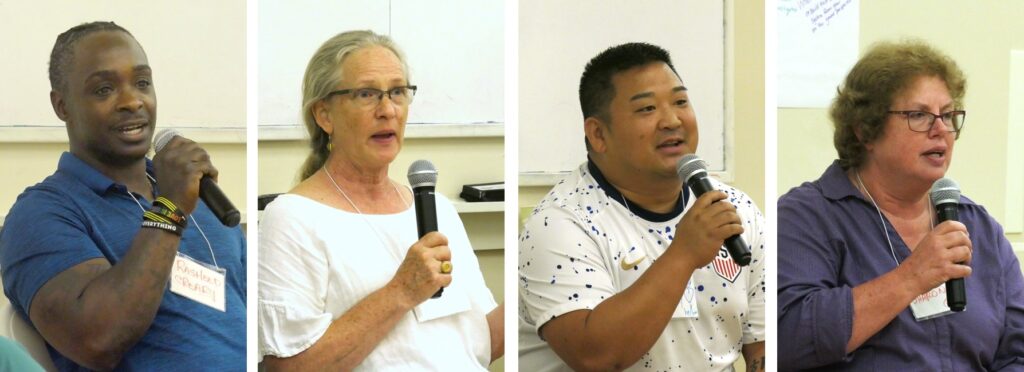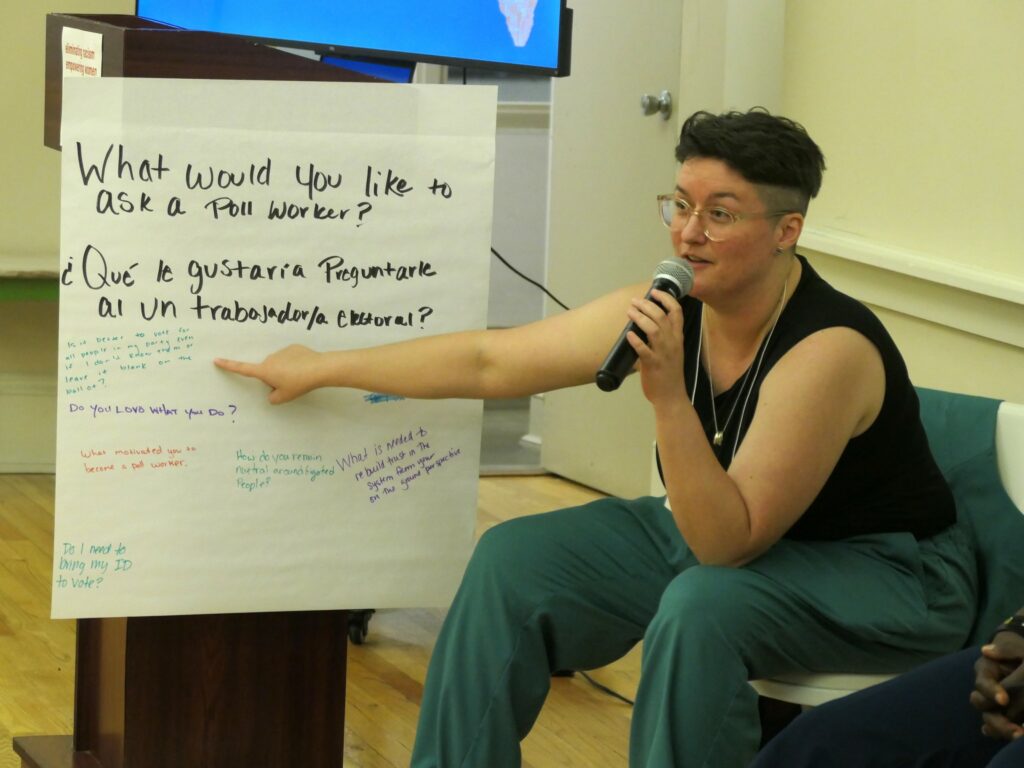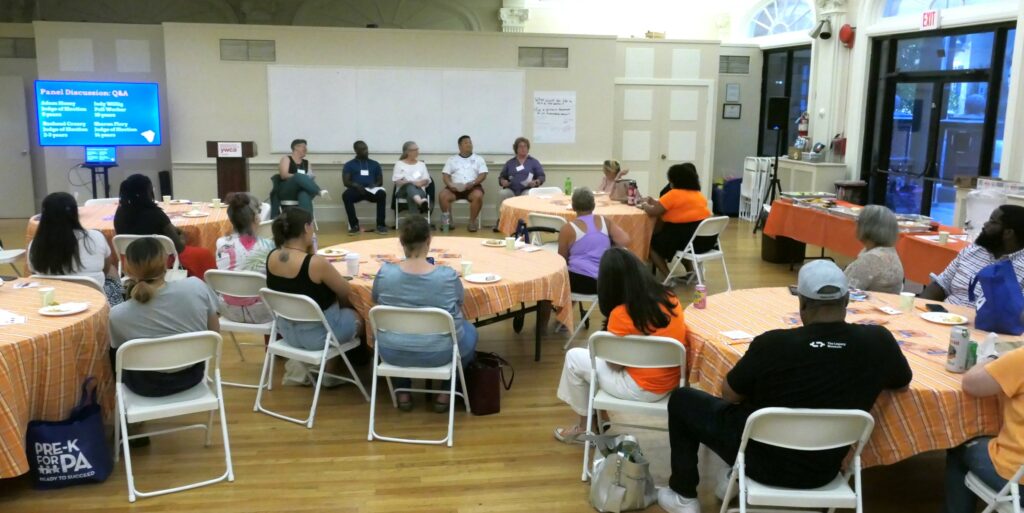What do poll workers do?
“Our job as poll workers is to make the voting process as safe and easy and comfortable as possible,” Adam Hosey said.
“We help you have your voice,” Judy Willig said.
Hosey and Willig joined fellow poll workers Rasheed Creary and Sharon Flory earlier this month for a wide-ranging panel discussion of the role they and thousands of volunteers like them play in the electoral system.

The Aug. 6 forum, moderated by Veronica Willig (who noted she is Judy Willig’s niece), kicked off YWCA Lancaster’s “Election Declassified: Voter Survival Guide,” a three-part series of workshops on election issues.
It is part of the Lancaster Votes initiative, a nonpartisan voter registration and education effort. YWCA Lancaster spearheads it with support from other local entities, including United Way of Lancaster County.
Lancaster County alone has more than 200 polling locations, each of which must be staffed every May primary and November general election by a judge of elections, a majority and minority inspector, and rank-and-file poll workers who assist with setup and breakdown, check in voters, answer questions and ensure an orderly process.
They receive training beforehand and normally work all day on Election Day.
For more information
To become a poll worker in Lancaster County, contact the county Elections Office or fill out Pennsylvania’s poll worker interest form.
There are two more sessions in the “Election Declassified: Voter Survival Guide” series, on Tuesday, Sept. 6, and Tuesday, Oct. 1. Both begin at 5:30 p.m. at YWCA Lancaster’s headquarters, 110 N. Lime St.
Attendance is free but registration is recommended; to register, click here. The September session will cover voting rights and voting barriers; the October session will cover civic engagement and why everyone’s vote matters.
A sacred right
The four panelists have manned polls anywhere from nearly three years to 14 years; Creary, Flory and Hosey serve as judges of elections. All four told Willig they enjoy it: There’s a camaraderie that comes with being part of the team at a polling place, and it feels deeply meaningful to help your fellow citizens exercise their constitutional right to vote.
It’s “one of the most sacred things we have as Americans,” Hosey said.

One perk of their role, they said, is seeing first-hand the measures being taken to ensure secure balloting and complete and accurate counting. People should absolutely have confidence in the system’s integrity and reliability, they said.
Creary said he thinks being a poll worker should be an obligation of citizenship, like jury duty.
Then you’ll know what the process is. … You can say, ‘You know, this is a fair system,'” he said.
There are many reasons people don’t vote, they said. Some are systemic, like complicated registration requirements. Some people just think their vote doesn’t matter.
That’s why creating a welcoming atmosphere is so important, Flory said. You want people to keep coming back, to make voting a habit, not to be dissuaded by a bad experience.
“The main thing is to make everybody who walks through that door feel comfortable,” she said.
Naturally, it’s frustrating when people are difficult or abusive, they said. As a poll worker, you have to remain neutral, get the person through the voting process and keep going.
“I kill people with my kindness,” said Creary, who as a Black man gets his share of double-takes and occasional bigoted comments.
“I’ll say, ‘OK, sign the book,’ and I’ll tell my team ‘Hey, just please get them through.’ (I’ll say) ‘Thanks for coming. We appreciate your vote,’ and just keep it up.”

Does your vote matter?
People should vote in line with their values, the poll workers advised. There are various reliable places to research candidates: One is Vote411, a nonpartisan resource maintained by the League of Women Voters.
A single vote may not seem like much, but they add up, Willig said. Hosey cited examples of close elections, such has Melissa Cerrato, who won a state House race in 2022 by just 63 votes out of 33,547 cast.
“Vote as if your life depends on it,” Creary said.
Poll workers find themselves correcting various misconceptions. One of the most common beliefs is that Pennsylvania requires voter ID, Creary said. That is only the case if you are a first-time voter or are voting at a new polling place for the first time.
Too many people only vote in presidential elections, Willig said. Voting in municipal elections is crucial: Those are the officials dealing with the issues in your local community, and those elections often come down to just a few votes.
Arguably, it’s more important to vote in the primary than the general election, she said. That’s when Republicans and Democrats are choosing who the general-election voters will have to pick from: “That’s where the rubber meets the road,” she said.
Voting is just one way to get involved in your community, the foursome said. There are boards and commissions that need volunteers, Willig said. Consider advocating for more accessible government, Hosey said, such as provisions for childcare during meetings, or the option to participate virtually.
You have more power than you think you have,” he said.






